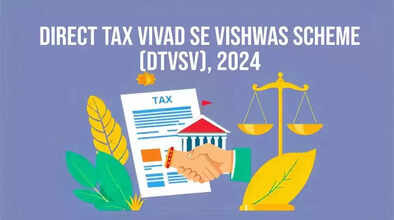DTVSV Scheme- These people of the country can take advantage of the Dispute to Trust Scheme, know its complete process

As we have told you through our earlier article that the government runs many schemes to help the economically weaker people of the country, one such scheme has been recently announced by Finance Minister Nirmala Sitharaman in the Union Budget, Direct Tax Dispute to Trust Scheme-2024, which is aimed at providing taxpayers an opportunity to settle long-standing income tax disputes with less penalty and interest, which is coming into effect from October 1, 2024, it is necessary for taxpayers to understand who can take advantage of this opportunity and what process is involved in it, let's know the complete details about it-
Who can avail DTVSV 2024?
Individual taxpayers: Those who have pending disputes related to income tax.
Corporate: Companies facing tax litigation for a long time.
Partnerships and other entities: Partnerships and other legal entities can also benefit from this scheme.
Key features of the scheme
Reduced penalty and interest: Taxpayers can settle their cases by paying a lower amount than the standard penalty and interest.
Reduced payment deadline: To avail the reduced settlement amount, taxpayers must complete their transactions by December 31, 2024. After this date, the amount payable will increase.
Required forms: Four forms have been set up for the scheme:
Form-1: Declaration and undertaking from the taxpayer.
Form-2: Certificate issued by the designated authority.
Form-3: Information of payment made by the taxpayer.
Form-4: Order for full and final settlement from the designated authority.
Procedure to avail the scheme
Filing of forms: Taxpayers can file Form-1 and Form-3 through the e-filing portal of the Income Tax Department (www.incometax.gov.in).
Submission Requirements:
Form-1 is required for each dispute, unless an appeal is already pending against the order.
Proof of withdrawal of appeal or petition should be accompanied by Form-3 while submitting it to the designated authority.

